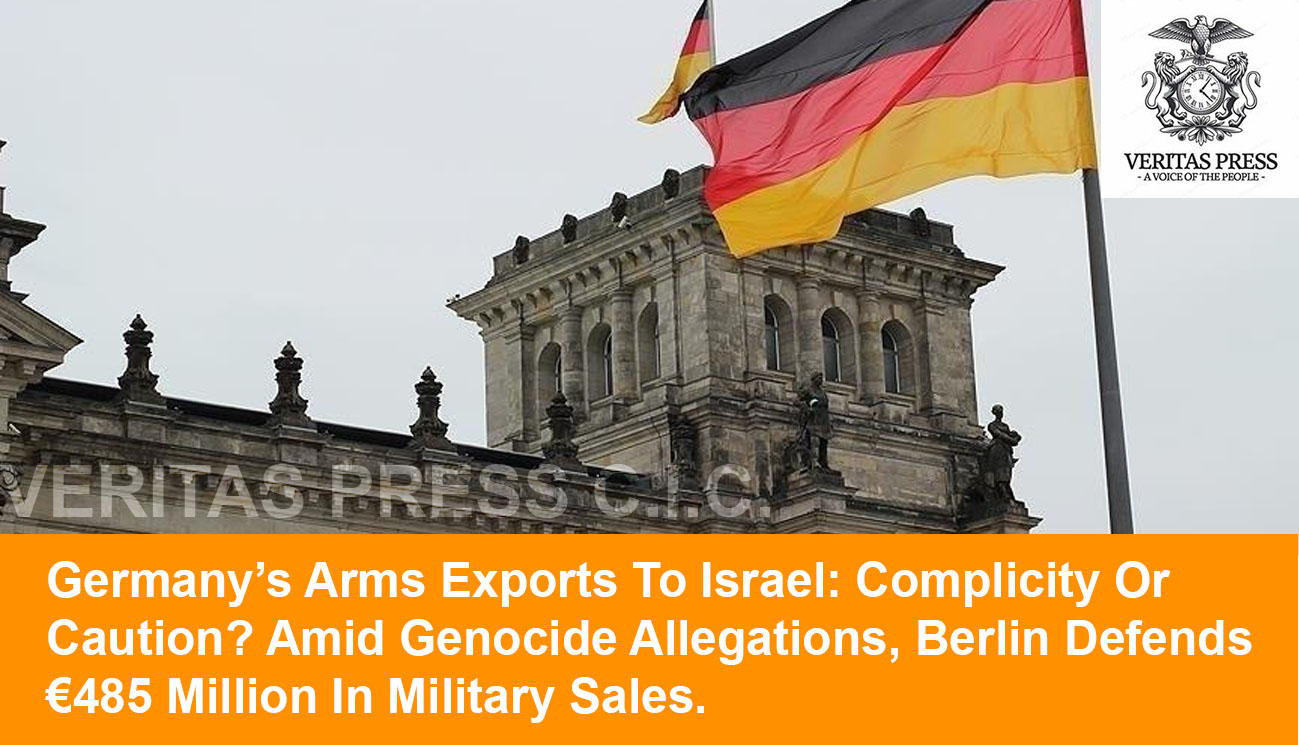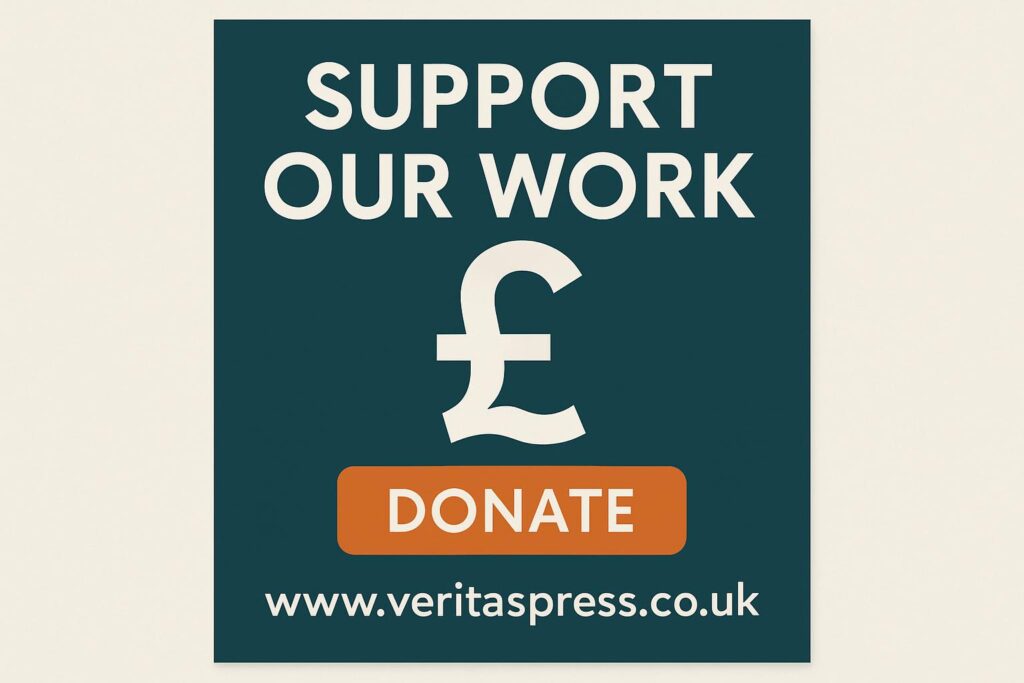BERLIN – Germany has continued to approve hundreds of millions of euros in military exports to Israel amid mounting evidence of war crimes and genocide in Gaza, raising urgent questions about Berlin’s complicity, international legal obligations, and the credibility of its post-Holocaust foreign policy.
According to newly released government data, Germany approved over €485 million ($526 million) in arms exports to Israel between October 7, 2023, and May 13, 2025, a period marked by one of the deadliest military campaigns in modern history.
The figures were disclosed in response to a parliamentary inquiry by the opposition Left Party (Die Linke). The approved weapons include firearms, ammunition, military electronics, naval systems, armoured vehicles, and weapons components, spread across 21 distinct export categories, underscoring the breadth and depth of Germany’s support to the Israeli war machine.
“This is not just arms trading, it is active complicity in crimes against humanity,” said Sevim Dağdelen, a Left Party MP and long-time critic of Germany’s pro-Israel policy. “You cannot claim to uphold human rights while fueling a genocide with weapons.”
Gaza In Ruins, And Germany On The Docket:
Since Israel launched its military campaign in Gaza following the Hamas-led attacks on October 7, more than 100,000 Palestinians have been killed, according to Gaza’s Health Ministry. UN agencies estimate that 80% of the dead are women and children, and that 1.9 million Palestinians, over 85% of Gaza’s population, have been forcibly displaced, facing starvation, thirst, and medical collapse.
The International Court of Justice (ICJ) has ruled that plausible acts of genocide are occurring in Gaza, while the International Criminal Court (ICC) has issued arrest warrants for Israeli Prime Minister Benjamin Netanyahu and former Defence Minister Yoav Gallant for alleged war crimes and crimes against humanity, including the deliberate use of starvation as a weapon.
Despite these developments, Berlin has defended its export policy. In a written statement to parliament, the German government insisted that each license is subject to a “case-by-case review” based on national, EU, and international criteria, including the Arms Trade Treaty and Germany’s own “Political Principles” on arms exports.
“Germany cannot wash its hands with legal technicalities while bombs funded by German taxpayers level schools and hospitals in Gaza,” said Dr. Raji Sourani, director of the Palestinian Centre for Human Rights in Gaza. “This is blood on the hands of those who approve these sales.”
A Policy Anchored In ‘Staatsräson’:
Germany has long justified its support for Israel as a “reason of state” (Staatsräson), citing historical responsibility for the Holocaust. Yet critics say this framing has been perverted to justify blind support for an apartheid regime accused of ethnic cleansing and now genocide.
“The uncritical invocation of ‘Staatsräson’ has become a moral shield for war crimes,” said Volker Beck, a former Green MP and critic of Israel’s far-right government. “Historical responsibility should mean defending human rights, not ignoring them.”
This contradiction has sparked tensions even within Germany’s ruling coalition. While Chancellor Friedrich Merz and Foreign Minister Johan Wadephul maintain unwavering support for Israel, members of the Green-led Economy Ministry have expressed growing concern over arms exports. According to Reuters, internal sources revealed that the ministry halted approvals of new “war weapons” licenses in early 2024, citing legal and political pressure, though Berlin has publicly denied any formal embargo.
“There is no German arms export boycott against Israel,” insisted government spokesman Steffen Hebestreit. But data show that only €14.5 million in exports were approved from January to August 2024, a significant drop from €326.5 million in 2023.
The discrepancy suggests an undeclared freeze in certain categories, possibly motivated by lawsuits filed by organisations like the European Centre for Constitutional and Human Rights (ECCHR), which is pursuing multiple legal challenges in German and international courts.
“Germany cannot simply argue that its process is legal; it must demonstrate that the outcome is not facilitating war crimes,” said Alexander Schwarz, an ECCHR lawyer. “The declining approval rates reflect real fear of legal accountability, even if officials won’t admit it.”
Silence and Secrecy: A Shield for Arms Makers.
The government has refused to disclose monthly delivery schedules, recipient units, or the names of defence companies involved, citing “national security.” Critics argue this opacity violates democratic principles.
“There is a pattern of obfuscation here,” said Andreas Zumach, a veteran journalist and arms trade analyst. “The public has a right to know whether their government is enabling mass atrocities.”
Germany’s major defence contractors, including Rheinmetall, Hensoldt, and Diehl Defence, are known suppliers of weapons components used by the Israeli military. Some of these firms have seen stock surges amid the Gaza war and the broader remilitarization of Europe.
“They profit from Palestinian blood,” said Sahar Francis, director of Addameer, a Palestinian human rights organisation. “And Berlin pretends it’s all just paperwork.”
Diplomatic Fallout And Legal Isolation:
Germany’s stance has increasingly isolated it in Europe. The Netherlands halted all exports of F-35 components to Israel in February, following a court order. The UK suspended 30 export licenses in July. Even U.S. President Joe Biden’s administration temporarily paused shipments of 2,000-pound bombs earlier this year over concerns about use in densely populated areas.
“If even Washington can acknowledge that Israeli conduct raises red flags under international law, Germany has no excuse,” said Michael Lynk, former UN Special Rapporteur on human rights in the occupied Palestinian territories. “Its credibility as a human rights defender is collapsing.”
Thirteen former German ambassadors to Middle Eastern countries echoed this concern in a letter to Chancellor Merz in June, demanding Berlin “match critical rhetoric with concrete action.”
A Legal Reckoning On The Horizon:
Germany is now the subject of two major legal challenges over its arms exports to Israel. The first, brought by Nicaragua at the ICJ, accuses Berlin of complicity in genocide. While the court declined to impose emergency measures, it did not dismiss the case, which remains under deliberation.
The second, led by the ECCHR and Palestinian victims, is currently before German administrative courts. It argues that Berlin violated both domestic and international law by continuing arms transfers despite overwhelming evidence of mass atrocities.
“This is not about politics, it’s about the rule of law,” said Schwarz. “And Germany is dangerously close to the wrong side of history.”
Conclusion: Germany’s Moral Crossroads.
As Israel’s war on Gaza enters its second year, and mass death, starvation, and displacement intensify, Berlin faces a stark choice: continue arming an internationally condemned war, or align its policies with the international legal and moral standards it claims to uphold.
Rights groups, legal experts, and even former diplomats are warning that Germany’s refusal to change course is not only dangerous, it may be criminal.
“Never again means never again for anyone,” said Bisan Owda, a Palestinian journalist reporting from Gaza. “Not just Jews. Not just Europeans. For us too. Why is Germany helping to kill us?”
Advertisements
Tags:






























Leave a Reply